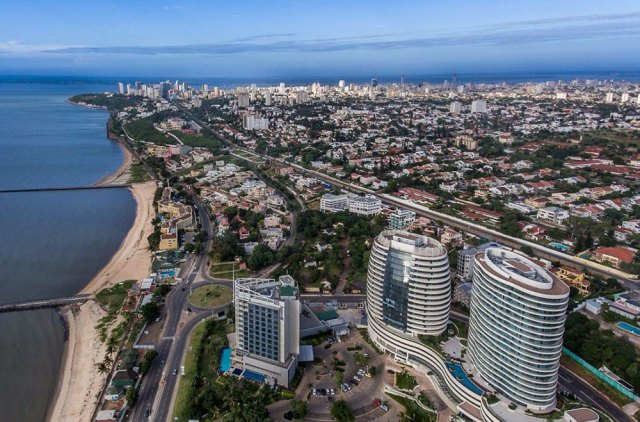FNB Moçambique outlines resilient strategy amidst challenging 2024 financial performance
Mozambique/Angola: Countries are good options for investment – Afreximbank

Maputo. File photo: Macauhub
Mozambique and Angola are good countries to invest in the long term, the vice president of the African Exports and Imports Bank (Afreximbank) said, but warned that those looking for easy profit will have problems.
“In the medium and long term, Angola and Mozambique are good countries to invest in,” Amr Kamel, vice president of Afreximbank, responsible for Business Development and Corporate Banking, told Lusa.
Speaking to Lusa at the end of the Afreximbank Annual Meetings, iver the weekend, Amr Kamel specified that “Angola is still in a difficult situation, but it is on the right path and taking the right measures, and anyone who looks at the country long term will not have problems in investing, but anyone who wants short-term gains may have problems.”
Afreximbank, he said, is “working with the National Bank of Angola and giving considerable support,” saying that “the difficulties are there, but they are overcoming them.”
In relation to Mozambique, Kamel said the country is “in a somewhat more difficult situation because of the reputation problem they had with the issue of hidden debt.”
The future “depends on how they resolve the issue with the International Monetary Fund and other institutions,” the banker said, adding that “the country is regaining credibility.”
Both countries, he concluded, “have enormous natural resources with great potential, but the way the economy has been managed has had a great impact.”
Afreximbank, whose Annual Meetings took place until Saturday in Abuja, the capital of Nigeria, is a support bank for trade, exports and imports in Africa and was founded in Abuja in 1993. It has a capital of US$11.9 billion and is based in Cairo.
The shareholders are public and private entities divided into four classes and include African governments, central banks, regional and subregional institutions, private investors, financial institutions, export credit agencies and private investors, as well as non-African financial institutions and individual investors.













Leave a Reply
Be the First to Comment!
You must be logged in to post a comment.
You must be logged in to post a comment.